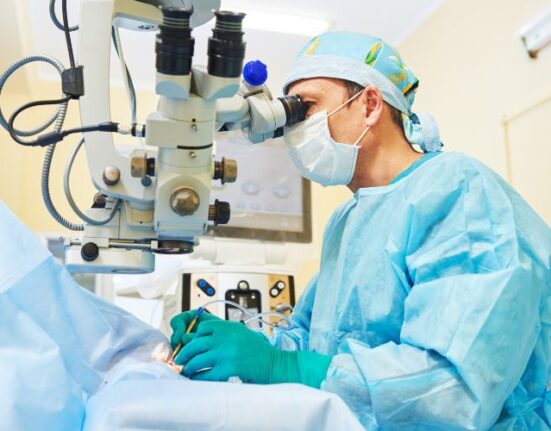EXPERT ADVICE TO HELP YOU SAVOR THE MOMENT & SAVE YOUR SIGHT DURING THE LARGEST TOTAL SOLAR ECLIPSE SINCE 1918
Planning a summer vacation around the chance to catch a glimpse of the Great American Eclipse on August 21? You’re not alone! USA Today reports 200 million people are within just one day’s drive of the “Path of Totality,” the 70-mile-wide diagonal strip between Oregon and South Carolina where the moon will cover the sun completely for two minutes. Even if you’re in an area that experiences a partial eclipse, retinal physicians say it’s critical for everyone to keep sight safety in mind.
Viewing an eclipse without proper eye protection can damage the retina, the delicate, light-sensing tissue that is responsible for your ability to read and recognize faces. Solar retinopathy occurs when image-sensing photoreceptors are destroyed following initial damage the retina and its surrounding tissue. The injury is similar to a thermal burn caused by a laser. Depending on the extent of the injury, people can suffer temporary vision loss, residual blurring and/or distortion or permanent vision loss.
In this interview, Geoffrey G. Emerson, MD, PhD, Chair of the American Society of Retina Specialists (ASRS) Research and Safety in Therapeutics Committee, offers advice to help you witness the eclipse safely. Dr. Emerson will also separate fact from fiction including:
- Is there ever a time when it is safe to look directly at the sun during the eclipse?
- Do regular sunglasses offer enough protection to view the event?
- Is it safe to take a selfie during the eclipse?
About Geoffrey G. Emerson, MD, PhD, chairs the Research and Safety in Therapeutics (ReST) Committee of the American Society of Retina Specialists (ASRS). The ReST Committee addresses patient safety concerns with regard to medical treatments, surgical procedures, and other exposures throughout North America. Dr. Emerson graduated summa cum laude from Yale University with a degree in chemical engineering. He also earned his M.D. and Ph.D. degrees from Yale. He has received numerous professional awards, including the Honor Award of the American Society of Retina Specialists, and the Secretariat Award of the American Academy of Ophthalmology. Dr. Emerson is a retina specialist in Minneapolis, specializing in medical and surgical treatment of retinal disease. He is a partner at Retina Center of Minnesota. He also serves as Chief of Staff of the Phillips Eye Institute, and Adjunct Assistant Professor at the University of Minnesota.
For more information visit asrs.org/eclipse
About the American Society of Retina Specialists: The non-profit ASRS is the largest retinal organization in the world, representing over 3,000 retina specialist members. All members are board-certified ophthalmologists with advanced fellowship training in the medical and surgical treatment of complex retinal diseases. The Foundation of the American Society of Retina Specialists focuses on educational outreach efforts aimed at improving the lives of those with retinal diseases and supporting the physicians who care for them.
THIS INTERVIEW IS PROVIDED BY: American Society of Retina Specialists

















